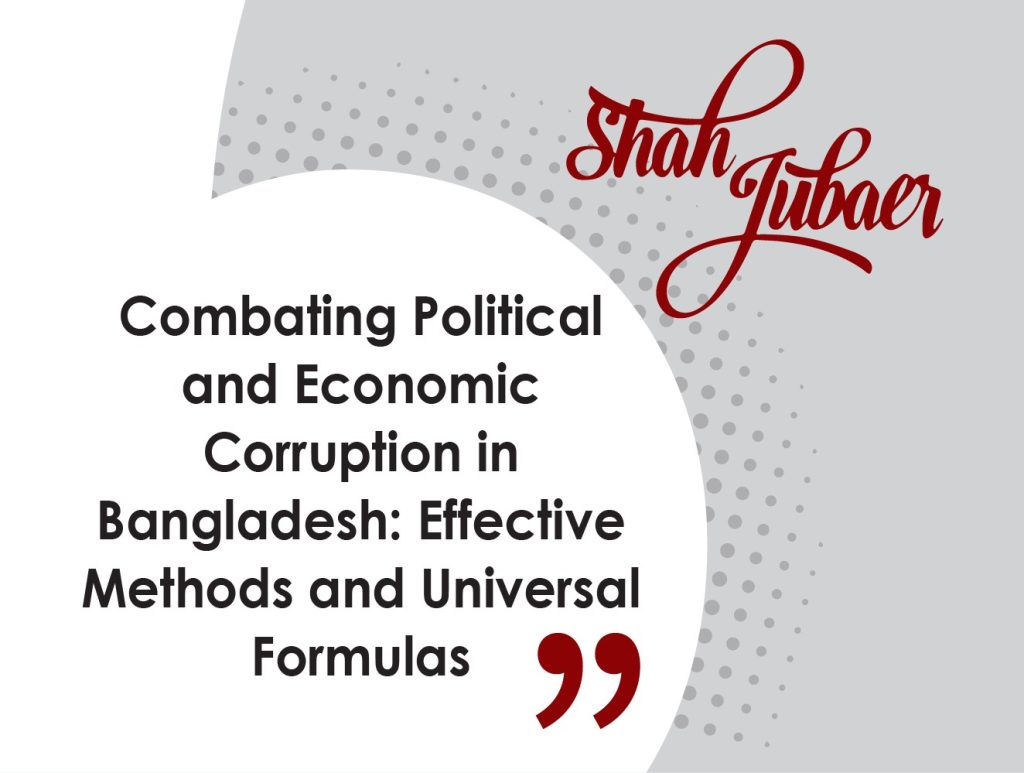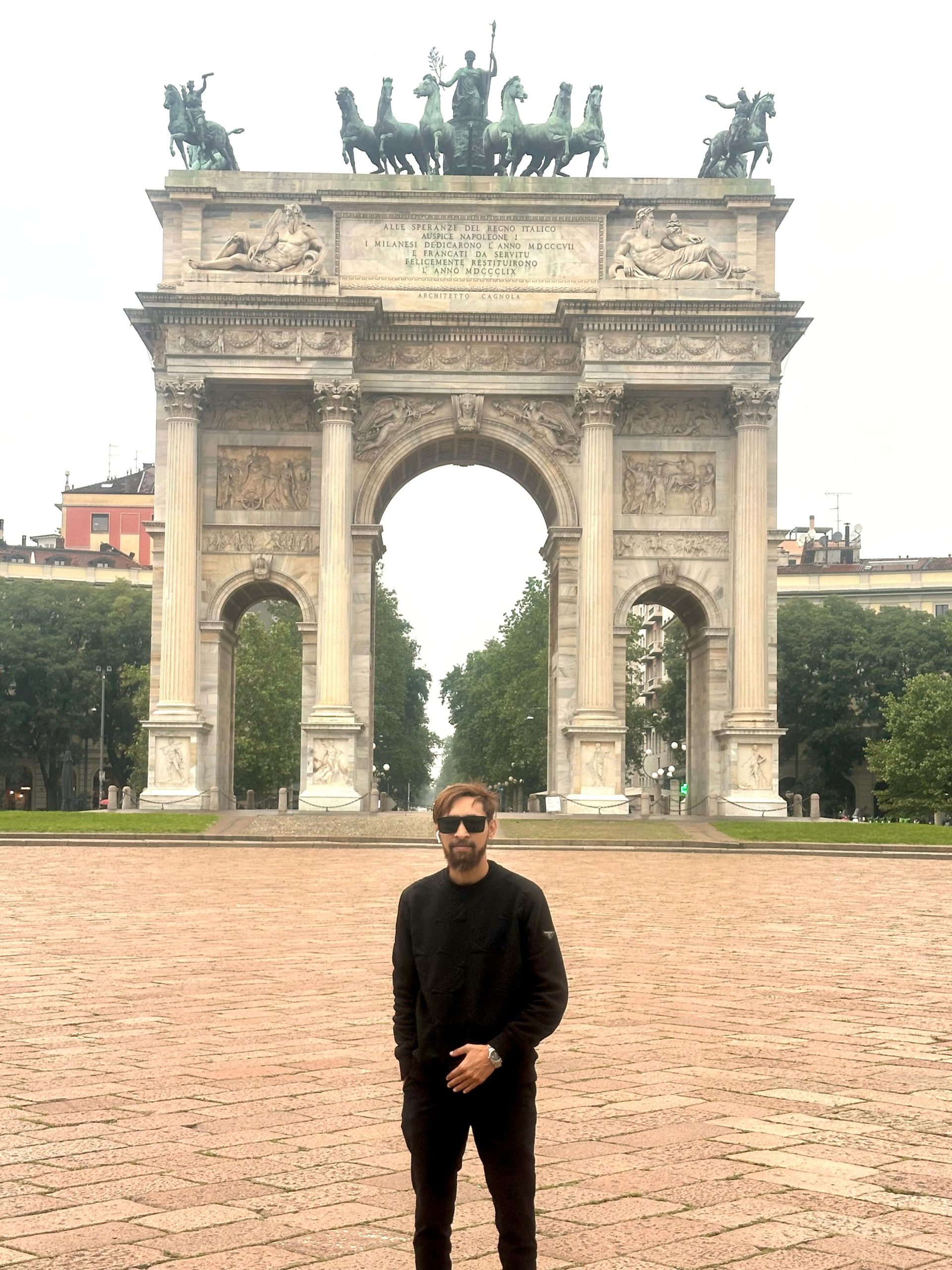Corruption is a significant issue in many developing countries, including Bangladesh. It depresses economic development, undermines public faith in institutions, and exacerbates social inequality. Combating corruption necessitates a multidimensional strategy that includes structural improvements, public empowerment, and technical breakthroughs. This blog delves into concrete techniques and universal approaches for tackling corruption in nations like Bangladesh, focusing on openness and accountability.
Understanding Corruption in Bangladesh
The following are some of the manifestations of corruption that may be seen in Bangladesh:
Political Corruption: Politicians abuse their influence for personal advantage, such as nepotism, vote-buying, and misusing public money.
Economic Corruption: Bribery, embezzlement, and illegal financial actions in the public and commercial sectors.
The underlying reasons include poor governance, a lack of transparency, insufficient accountability, and poverty. Addressing these difficulties demands a strong, systematic strategy.
Key Methods to Combat Corruption
1. Strengthening Legal Frameworks
A well-structured legal system is critical to preventing corruption. Specific steps include:
Enforcing Anti-Corruption Laws: Reforming legislation to combat contemporary kinds of corruption, such as digital fraud.
Independent Judiciary: Ensure judicial independence to prosecute corruption cases appropriately.
Whistleblower Protection: Enacting strong safeguards for persons who report corruption.
2. Promoting Transparency through Technology
Digital solutions may minimise corruption by reducing the amount of human involvement in service delivery. Major initiatives:
E-Governance: Digitise government services for greater accessibility and transparency.
Blockchain Technology: Use blockchain to keep secure, tamper-proof records of public spending and elections.
Public Reporting Platforms: Create mechanisms allowing citizens to denounce corruption anonymously.
3. Empowering Civil Society
Civil society organisations (CSOs) and the people must be actively involved:
Citizen Watchdogs: Encourage community-based oversight of public projects and budgets.
Media Freedom: Protect investigative journalism to expose corruption.
Awareness Campaigns: Educate citizens on their rights and how to expose corruption.
4. Reforming Political Systems
When addressing the issue of political corruption, take into consideration:
Election Reforms: Apply campaign funding rules and support honest elections.
Asset Declarations: Demand authorities and politicians to list their holdings openly.
Term Limits: Term restrictions for public servants will help to avoid power monopolies.
5. Enhancing Accountability Mechanisms
Institutions responsible for oversight must be strengthened:
Independent Anti-Corruption Commission (ACC): Give authorities like Bangladesh’s ACC the resources and authority they need to investigate and prosecute crimes.
Audit Systems: Regular audits of government projects are conducted to maintain accountability.
Performance Metrics: Promote and reward public officials based on their performance and openness.
Universal Formulas for Success
1. Transparency + Accountability = Trust
Transparency promotes public trust and holds leaders responsible for their actions.
2. Education × Awareness = Empowered Citizens
Educating citizens on their rights and duties lowers the tolerance for corruption.
3. Technology ÷ Bureaucracy = Efficiency
Bribery chances are eliminated by reducing bureaucratic impediments through technology.
4. Leadership + Ethics = Integrity
Ethical leadership sets the tone for anti-corruption efforts at all levels of government.
Case Studies: Learning from Global Success Stories
1. Singapore: Zero Tolerance for Corruption
Singapore enacted strict anti-corruption legislation, an independent judiciary, and merit-based public sector appointments. The country’s Corrupt Practices Investigation Bureau (CPIB) is adept at enforcing regulations.
2. Estonia: Digital Transformation
Estonia’s e-governance architecture promotes openness in public services, from tax collecting to voting, therefore considerably lowering the opportunity for corruption.
3. Rwanda: Strong Leadership
Rwanda’s leadership values openness and accountability. The country’s anti-corruption strategies prioritise institutional change and public involvement.
Challenges and the Road Ahead
Despite the efficacy of these approaches, there remain obstacles to their implementation in Bangladesh:
Resistance to Change: There will be pushback against changes since corrupt people usually benefit the powerful.
Resource Constraints: Insufficient human and financial resources might impede anti-corruption initiatives.
Cultural Norms: Society’s acknowledgement of corruption might impede advancement.
Overcoming Challenges
Political Will: Change cannot be pushed forward without strong, ethical leadership.
International Cooperation: A source of technical and financial assistance is forming partnerships with international organisations.
Long-Term Vision: You have to keep at it over time to see any real change.
Corruption in Bangladesh must be eradicated through a holistic approach that includes structural changes, technology breakthroughs, and citizen empowerment. Bangladesh can promote openness, accountability, and good governance by drawing on successful global precedents and using universal formulae. The trip may be difficult, but it is possible to create a corruption-free society with collaborative work.

















